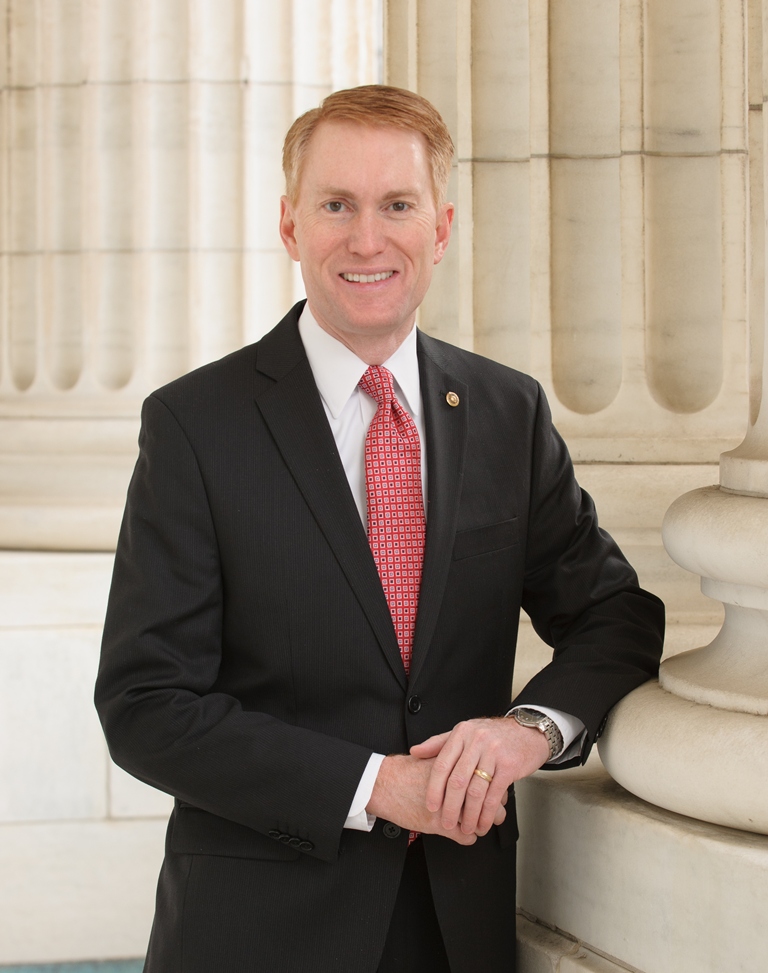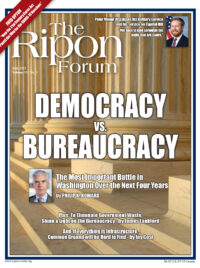Taxpayers Right-to-Know Act will create an inventory of every federal program
 The federal government is an expert at spending other people’s money. March of this year made that clear. Congress responded to the pandemic throughout 2020 with “rainy day” debt spending during a very “rainy” year. But when the economy was recovering and it was time to pull back spending and start paying down the deficit, Democrats opened the flood gates to spending under the umbrella of “COVID,” which has added trillions to our debt.
The federal government is an expert at spending other people’s money. March of this year made that clear. Congress responded to the pandemic throughout 2020 with “rainy day” debt spending during a very “rainy” year. But when the economy was recovering and it was time to pull back spending and start paying down the deficit, Democrats opened the flood gates to spending under the umbrella of “COVID,” which has added trillions to our debt.
In the first week of March, congressional Democrats pushed through a $1.9 trillion spending bill that gave money to people for not working, created a new entitlement program, and sent $350 billion to cities and states after the pandemic was nearly over. Only about one percent of the bill went to vaccines, and five percent went to public health. California received $27 billion from the bill, despite the fact that its 2020 tax revenue — like many state revenues — actually went up during the pandemic thanks to booming local sales taxes.
Federal pandemic overspending this year has pushed inflation up, unemployment up, and supply-chain reliability down. If debt and deficit spending only happened during the pandemic, we could recover faster, but unfortunately deficit spending is the norm in Washington. In 2015, I began putting together a regular report to Oklahomans of federal waste and duplication — Federal Fumbles: Ways the government dropped the ball. At that time, our national debt was a “measly” $18 trillion, and that was scary. In the six years since, we’ve added $10 trillion, bringing our debt to $28 trillion currently. That level of debt is unsustainable, and everyone knows it.
Soon, there will be a searchable list of every program in the federal government, how many employees are dedicated to that task, how much we spend on the program, and how it is evaluated – if it is evaluated at all.
Over the years, we have published hundreds of ways the federal government has dropped the ball. In 2016, Federal Fumbles uncovered that the Department of Defense Task Force for Business and Stability Operations spent $43 million to build an unused compressed natural gas station in Afghanistan. In 2017, Federal Fumbles highlighted a $30,000 National Endowment for the Arts (a frequent Federal Fumbles offender) grant supporting the production of “Doggie Hamlet,” an adaptation conducted outdoors in a 30-by-50-foot field in New Hampshire with mostly humans yelling or running toward confused sheep and dogs.
While Russia threatened the security of the free world, U.S. taxpayers doled out $1.7 million to understand Russian sea lions and $121,250 to study the history of Russian cigarettes.
We have exposed the waste, but budget gimmicks, duplicative programs across multiple agencies, and government waste are only fixable if Congress and the American people can see them. Until now, Congress and the American people had no way to track spending, duplication, and waste.
After a decade of pushing, my solution, the Taxpayers Right-to-Know Act, became law. We now have a process to allow people to see the waste and know what we spend on every federal program. In Congress, persistence is key.
The Taxpayers Right-to-Know Act calls for the creation of a functional federal program inventory that can be used as a tool for oversight of federal spending. Soon, there will be a searchable list of every program in the federal government, how many employees are dedicated to that task, how much we spend on the program, and how it is evaluated — if it is evaluated at all. It is sunshine and sortable information for our tax dollars.
Once our federal inventory is in place, every American can be a budget hawk. In fact, I invite you to take a look at it yourself and see exactly how your money is being spent. If you find this year’s equivalent to “Doggie Hamlet,” call it out, so we can work together to find ways to save our money and get rid of the ticking time bomb that is our federal deficit.
James Lankford represents Oklahoma in the United States Senate.




